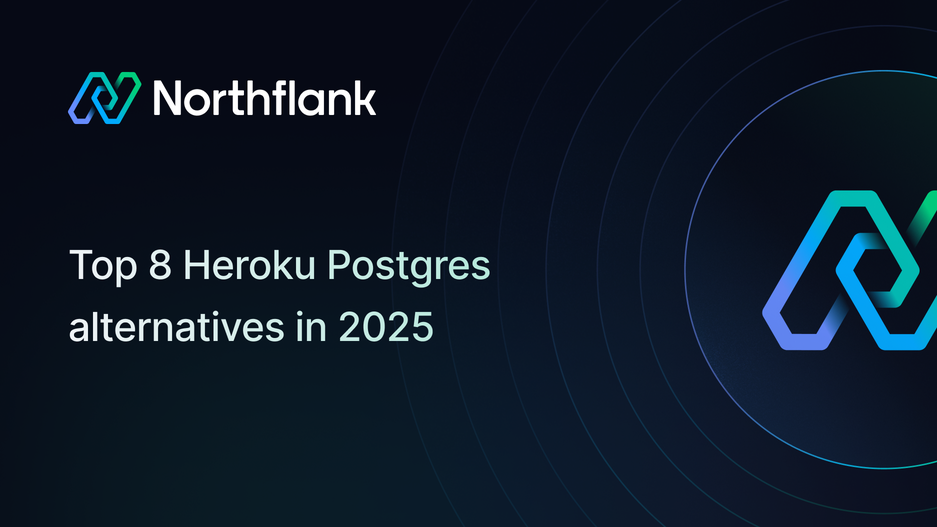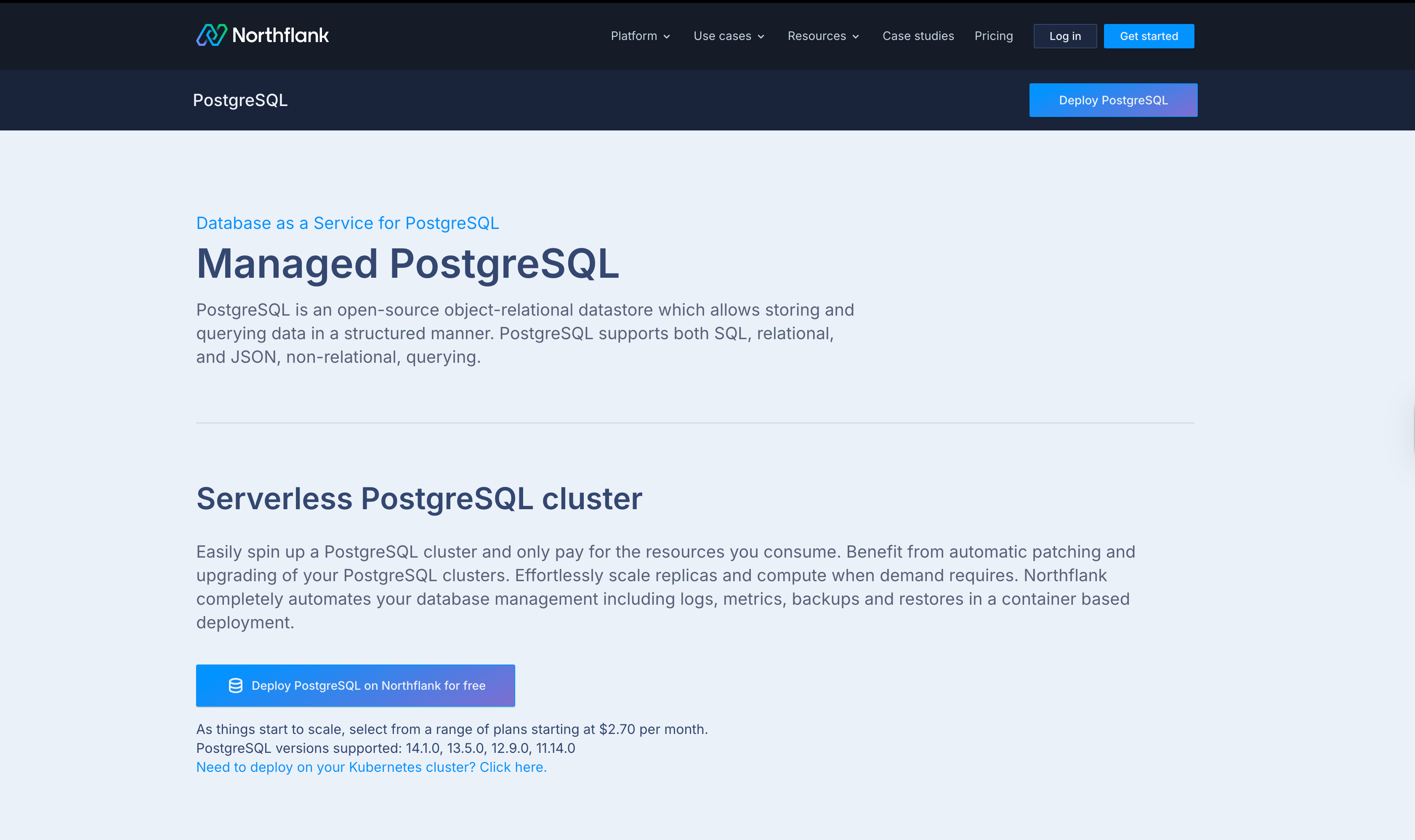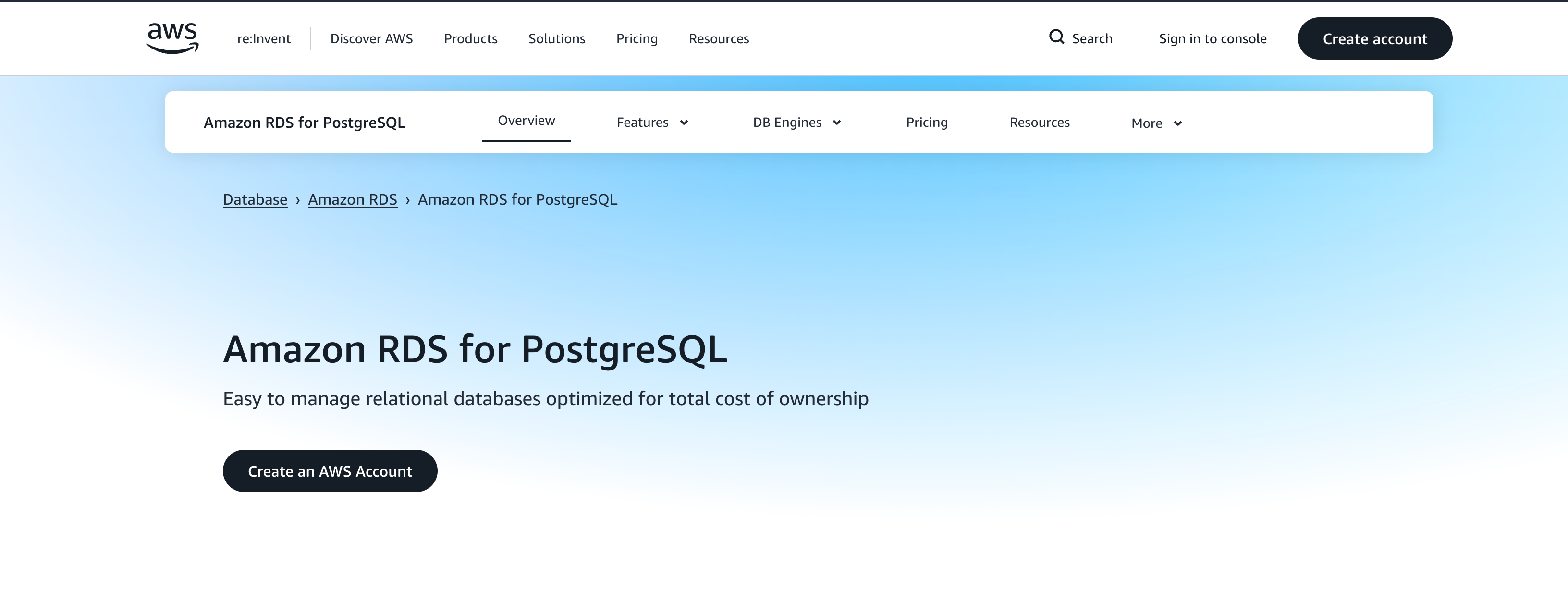

Top 8 Heroku Postgres alternatives in 2026
Heroku Postgres alternatives are gaining attention as development teams look for more cost-effective, flexible, and scalable database solutions.
While Heroku Postgres has been a reliable managed database service for over 12 years, rising costs, limited deployment options, and vendor lock-in concerns are prompting organizations to evaluate alternatives.
If you're paying $50-$500+ monthly for Heroku Postgres or need better multi-cloud flexibility, this guide compares the top alternatives to help you make an informed decision.
See a quick list of the top 5 Heroku Postgres alternatives we’ll review in this guide:
- Northflank - Best for startups to enterprise teams wanting Heroku-like simplicity with multi-cloud flexibility, transparent pricing, auto-scaling, and modern DevOps features. You can deploy PostgreSQL on AWS, GCP, Azure, Oracle Cloud, Civo, or bare-metal from a single platform with built-in CI/CD, preview environments, and significant cost savings.
- Neon - Best for serverless PostgreSQL with database branching capabilities
- AWS RDS - Best for AWS-native teams needing the widest extension support and tight AWS service integration
- Railway - Best for side projects and prototypes with simple setup
Keep these considerations in mind: Cost transparency, deployment flexibility, developer experience, performance requirements, and compliance needs.
Understanding why teams migrate away from Heroku Postgres helps identify what to prioritize in an alternative. You can use the following evaluation criteria:
Heroku's pricing can become expensive as you scale. Essential tier starts at $5/month but jumps to $50/month for Standard-0 (without high availability), then $200+ for production-ready plans. Look for alternatives with clear, usage-based pricing that scales predictably with your application.
Heroku Postgres Essential and Standard tiers are limited to US East and EU West regions. Additional regions require Enterprise-level Private Spaces. If you need specific geographic deployments for compliance or low latency, these limitations can be constraining. Modern alternatives provide deployment across multiple cloud providers and regions at all pricing tiers.
While Heroku Postgres is reliable, some alternatives now deliver better query throughput, lower latency, and more flexible scaling options. Evaluate your performance requirements, including connection pooling, read replicas, and auto-scaling capabilities.
The best alternatives maintain Heroku's developer-friendly approach while adding modern features like Git-based workflows, preview environments, database branching, and comprehensive observability (logs, metrics, traces). Look for intuitive interfaces, good documentation, and comprehensive CLI/API support.
Automated backups, point-in-time recovery, and high availability are non-negotiable for production workloads. Heroku provides these features, but often at premium pricing tiers. Evaluate how alternatives handle disaster recovery and what their SLAs guarantee.
For regulated industries, compliance certifications (PCI, HIPAA, SOC 2, ISO) and security features like encryption at rest and in transit, network isolation, and access controls are essential. Review your specific compliance requirements when evaluating options.
Being tightly coupled to the Heroku ecosystem can make migration difficult. Alternatives offering standard PostgreSQL with infrastructure independence provide easier exit paths and integration flexibility.
We've evaluated the following alternatives based on cost-effectiveness, deployment flexibility, developer experience, performance, and scalability to help you find the best fit for your specific requirements.
Northflank delivers a modern cloud platform that combines the simplicity developers love about Heroku with the flexibility and cost-efficiency that growing teams need. Built for the multi-cloud era, Northflank lets you deploy and manage PostgreSQL databases on AWS, GCP, Azure, Oracle Cloud, Civo, or bare-metal from a single, unified platform.

Key features:
- Multi-cloud deployment flexibility: Choose AWS, GCP, Azure, Oracle Cloud, Civo, or bare-metal for each database based on your needs. Deploy in 30+ regions globally for low-latency access without vendor lock-in or platform changes.
- Cost-effective and transparent pricing: Reduce database expenses by 40-60% compared to equivalent Heroku plans with predictable, usage-based pricing. Start small and scale efficiently as you grow, with the ability to pause development databases to save costs.
- Smooth Heroku migration path: Maintain the git-based, developer-friendly workflow you're familiar with while gaining multi-cloud flexibility. Comprehensive migration guide and step-by-step documentation make the transition straightforward.
- Serverless PostgreSQL with flexible scaling: Scale horizontally with read replicas and vertically with increased compute capacity. Scale resources up or down based on demand without downtime.
- Developer-first workflows: Git-based deployments with automatic builds on every commit. Preview databases for pull requests to test schema changes safely. Connect locally to remote databases using the Northflank CLI proxy.
- Comprehensive observability: Real-time log tailing with filtering and search. Performance metrics including CPU, memory, network, and database-specific metrics. Configure alerts to notify your team before issues impact users.
- Built-in backups and point-in-time recovery: Automated daily backups with configurable retention. Create manual backups before changes. Restore your database to any point in time, protecting against accidental data loss.
- Advanced networking and security: Private networking between services. TLS/SSL encryption for all connections. Fine-grained access controls. Option to deploy on your own Kubernetes cluster for maximum control.
- Enterprise-ready database management: Support for PostgreSQL versions 11.x through 14.x with automated patching. Enable PostgreSQL extensions as needed. Import from existing databases. Fork databases for testing.
Pricing:
Northflank offers transparent, usage-based pricing that scales with your actual resource consumption. Unlike Heroku's rigid tier structure, you pay only for the compute, memory, and storage you use:
- Free sandbox environment: Test Northflank with a free sandbox to evaluate the platform before committing
- Pay-as-you-go: No monthly minimums or commitments - scale up and down as needed
- Enterprise: For high growth startups and Enterprises with thousands of developers (SSO, SAML/OIDC, Audit logs, Secure runtime and on-prem deployments, Global back-ups and HA/DR and more)
- Significant cost savings: Teams typically see 40-60% cost reduction compared to equivalent Heroku Postgres plans
- Transparent pricing calculator: Know exactly what you'll pay before deploying
- No hidden fees: What you see is what you pay (no surprise charges for backups, networking, or other essentials)
For detailed cost comparisons and savings calculations, visit our Heroku pricing comparison tool. Also see the full pricing details.
Why choose Northflank:
Northflank works well for startups to enterprise teams that need Heroku's simplicity but want more control, better economics, and modern capabilities. You get production-grade managed PostgreSQL with the flexibility to deploy across multiple cloud providers, comprehensive DevOps tooling built-in, and pricing that makes sense at every stage of growth.
The platform is particularly suited for teams running multiple environments (development, staging, production) who need consistent infrastructure management, preview environments for testing, and the ability to scale infrastructure without scaling costs proportionally.
Learn more about managed PostgreSQL on Northflank or check out our guides on top Heroku alternatives and enterprise capabilities.
Neon offers a serverless PostgreSQL platform with an architecture that separates storage from compute.

Key features:
- Serverless architecture: Auto-scales to zero when not in use, reducing costs
- Instant branching: Create database branches for testing and development
- Sub-second cold starts: Fast wake-up times from idle state
- Built-in connection pooling: Handles a number of connections efficiently
Best for: Development teams needing ephemeral databases, applications with sporadic traffic, and teams wanting database branches for testing.
Supabase positions itself as an open-source Firebase alternative with PostgreSQL at its core.

Key features:
- Real-time subscriptions: Built-in real-time functionality for database changes
- Auto-generated APIs: REST and GraphQL APIs generated from your schema
- Authentication: Integrated auth system with row-level security
- Storage: File storage alongside your database
Best for: Full-stack developers building web and mobile applications who want an all-in-one backend solution with PostgreSQL as the foundation.
AWS RDS is a managed PostgreSQL service from a major cloud provider.

Key features:
- Extensive features: Multi-AZ deployments, read replicas, automated backups
- 92+ extensions: Extensive extension support among managed services
- Flexible scaling: Vertical and horizontal scaling options
- Integration: Integration with other AWS services
Best for: Organizations already using AWS infrastructure, enterprise applications requiring extensive features and compliance certifications.
Google Cloud SQL provides a fully managed PostgreSQL service on GCP infrastructure.

Key features:
- High availability: 99.95% SLA with automatic failover
- Integration: Native integration with Google Cloud services
- Automatic storage increase: Storage scales as needed
- Point-in-time recovery: Restore to any point within retention period
- Performance: Consistent throughput and latency characteristics
Best for: Teams using Google Cloud Platform, applications requiring integration with GCP services like BigQuery or Cloud Run.
Microsoft Azure's managed PostgreSQL offering provides enterprise-grade features and reliability.

Key features:
- Flexible server: Single and flexible server deployment options
- High availability: Zone-redundant high availability options
- Advanced threat protection: Built-in security intelligence
- Hybrid capability: Integration with on-premises infrastructure
- Hyperscale option: Citus extension for horizontal scaling
Best for: Organizations with existing Azure infrastructure, enterprises requiring Microsoft ecosystem integration.
Railway offers a simple, developer-focused platform for deploying databases and applications.

Key features:
- Simple setup: Deploy PostgreSQL in seconds
- Git-based deployment: Automatic deployments from Git
- Built-in metrics: CPU, memory, and network monitoring
- CLI and dashboard: Manage databases via command line or web interface
- Database forking: Create database copies for testing and development
Best for: Side projects and prototypes with simple setup requirements.
DigitalOcean provides managed PostgreSQL for teams needing operational database hosting.

Key features:
- Automated backups: Daily automated backups with point-in-time recovery
- High availability: Standby nodes for automatic failover
- Vertical scaling: Scale through the interface as needed
- SSD-backed storage: Solid-state storage for consistent throughput
- Monitoring dashboard: Track database performance and health
Best for: Small to medium businesses wanting predictable costs and straightforward management.
Need help migrating from Heroku?
Moving from Heroku Postgres doesn't have to be complicated. Check out our comprehensive resources:
- Step-by-step migration guide - Detailed walkthrough of the migration process
- Migration documentation - Technical documentation for developers
The best Heroku Postgres alternative depends on your team's specific requirements, technical constraints, and growth trajectory. Use this comparison table to identify which solution aligns with your priorities:
| Choose this alternative | If you need |
|---|---|
| Northflank | Managed PostgreSQL with Heroku-like experience, multi-cloud deployment (AWS, GCP, Azure, Oracle Cloud, Civo, bare-metal), auto-scaling, built-in CI/CD, preview environments, and 40-60% cost reduction vs Heroku. Git-based workflows with database forking. For teams migrating from Heroku, startups to enterprise needing deployment flexibility without vendor lock-in. |
| Neon | Serverless auto-scaling with database branching capabilities for variable workloads. Suitable for development environments and applications with unpredictable traffic patterns. |
| Supabase | Includes database, auth, storage, real-time subscriptions, and auto-generated APIs. Suitable for full-stack developers building web or mobile applications needing an integrated backend platform. |
| AWS RDS | Established managed PostgreSQL service with 92+ extensions, extensive AWS integration, and enterprise-grade features. Suitable if you're already invested in AWS infrastructure or need comprehensive feature support. |
| Google Cloud SQL | Native integration with Google Cloud services and 99.95% SLA. Suitable if you're building on GCP or need specific Google Cloud integrations like BigQuery. |
| Azure Database | PostgreSQL with Microsoft ecosystem integration, hybrid cloud capabilities, and zone-redundant high availability. Suitable for organizations standardized on Azure or requiring Microsoft integrations. |
| Railway | Database deployment with Git-based workflows and CLI tooling. Suitable for side projects, prototypes, and development environments needing quick setup. |
| DigitalOcean | Managed PostgreSQL with fixed-tier plans and vertical scaling. Suitable for small to medium businesses needing operational database hosting. |
For teams currently on Heroku facing escalating costs, limited deployment options, or in search of modern DevOps capabilities, now is the time to evaluate your options.
Northflank provides the smoothest path forward for Heroku users, delivering the developer experience you're familiar with while adding multi-cloud flexibility, transparent pricing, and modern infrastructure management. Teams typically achieve 40-60% cost savings while gaining better performance, more deployment options, and comprehensive observability.
Your next steps:
- Evaluate your current costs and requirements - Document what you're paying for Heroku Postgres and identify your pain points
- Test alternatives hands-on - Most platforms offer free tiers or trial periods for evaluation
- Calculate total cost of ownership - Use our pricing comparison tool to understand potential savings
- Plan your migration - Review our migration guide and documentation
- Start small - Begin with development environments before moving production workloads
Get started with Northflank:
- Start with a free sandbox
- Book a demo to speak with an expert engineer about your specific requirements
- Learn more about managed PostgreSQL on Northflank
Making the move away from Heroku Postgres can seem daunting, but with the right alternative and proper planning, most teams complete their migration in days, not months. The investment in evaluating alternatives now can save significant costs and provide better infrastructure for years to come.